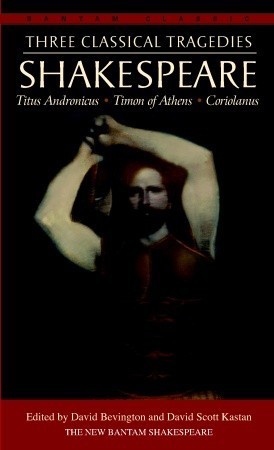Titus Andronicus * Timon of Athens * Coriolanus
Each Edition
Comprehensive explanatory notes placed on pages facing the text of the play
Vivid introductions and the most up-to-date scholarship
Clear, modernized spelling and punctuation, enabling contemporary readers to understand the Elizabethan English
Completely updated, detailed bibliographies and performance histories
An interpretive essay on film adaptations of the play, along with an extensive filmography
Titus Andronicus
This, Shakespeare’s earliest tragedy, is also his bloodiest and most horror-filled. A Roman general, to appease the spirit of his dead son, sacrifices the son of a captive Goth queen—and sets in motion a remorseless cycle of revenge and counterrevenge. The play’s vivid spectacle of violence stuns audiences with rape, murder, mutilation, and unmitigated cruelty.
Timon of Athens
This stark drama—in some ways Shakespeare’s most bitter play—is a brilliant psychological portrait of a wealthy Athenian lord whose extraordinary trust and love for others turns to hate and spite when, bankrupted by his generosity, he is overwhelmed by the indifference and ingratitude of those he had thought friends.
Coriolanus
The arrogance of a Roman military hero puts him in conflict with the people of Rome when the aristocrat is unwilling to compromise with the commoners he so despises. Compellingly relevant today, Shakespeare’s last tragedy—from its opening scene of popular unrest to its chilling climax of betrayal and murder—takes an unwavering, ironic look at political extremism.

